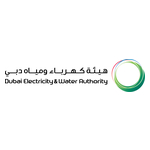DEWA’s Nanosatellite DEWA-SAT1 is Stable in its Low Earth Orbit
DUBAI, United Arab Emirates–(BUSINESS WIRE)–Dubai Electricity and Water Authority (DEWA) announced that DEWA-SAT 1, which it launched last month, is stable in its low earth orbit at 525 kilometres. It travels at some 7.5 kilometres per second and takes about 90 minutes to orbit the Earth.
HE Saeed Mohammed Al Tayer, MD and CEO of DEWA, said that DEWA-SAT 1 is a 3U nanosatellite. It was launched as part of DEWA’s Space-D programme to improve its operations, maintenance, and planning of electricity and water networks by using nanosatellites and taking advantage of the technologies of the Fourth Industrial Revolution, including the Internet of Things (IoT), Artificial Intelligence (AI), blockchain, and information exchange through space communications, Earth observation and remote-sensing technologies.
“Through the Space-D programme, we intend nanosatellite technology to complement the terrestrial IoT communication network to increase the efficiency and effectiveness of DEWA’s operations and support the digitisation of our electricity and water networks. This will increase the efficiency and effectiveness of our planning, operations, and preventive maintenance for our production, transmission, and distribution divisions as well as our smart grids and electric vehicle charging stations. It also reduces costs, improves asset use, enables knowledge and experience transfer, and educates Emiratis at DEWA. By the end of 2022, we plan to launch a 6U nanosatellite with customised high-resolution image sensing technology to be specifically designed for DEWA to communicate with its IoT terminals. The project includes applications to collect and analyse data. multi-spectrum, high-resolution thermal imaging devices such as those used on board spacecraft. They are specifically designed for use in electricity and water networks, and will be deployed to detect thermal fingerprints in high voltage transmission lines, substations, buildings and solar power stations,” said Al Tayer.
DEWA, in collaboration with NanoAvionics, launched DEWA-SAT 1 nanosatellite on a SpaceX Falcon 9 rocket from Cape Canaveral Space Launch Complex (SLC-40) in Florida, USA. DEWA is the world’s first utility to use nanosatellites to improve the operation, maintenance, and planning of electricity and water networks.
*Source: AETOSWire
Contacts
Shaikha Almheiri
Dubai Electricity and Water Authority
+971552288228
Shaikha.almheiri@dewa.gov.ae



